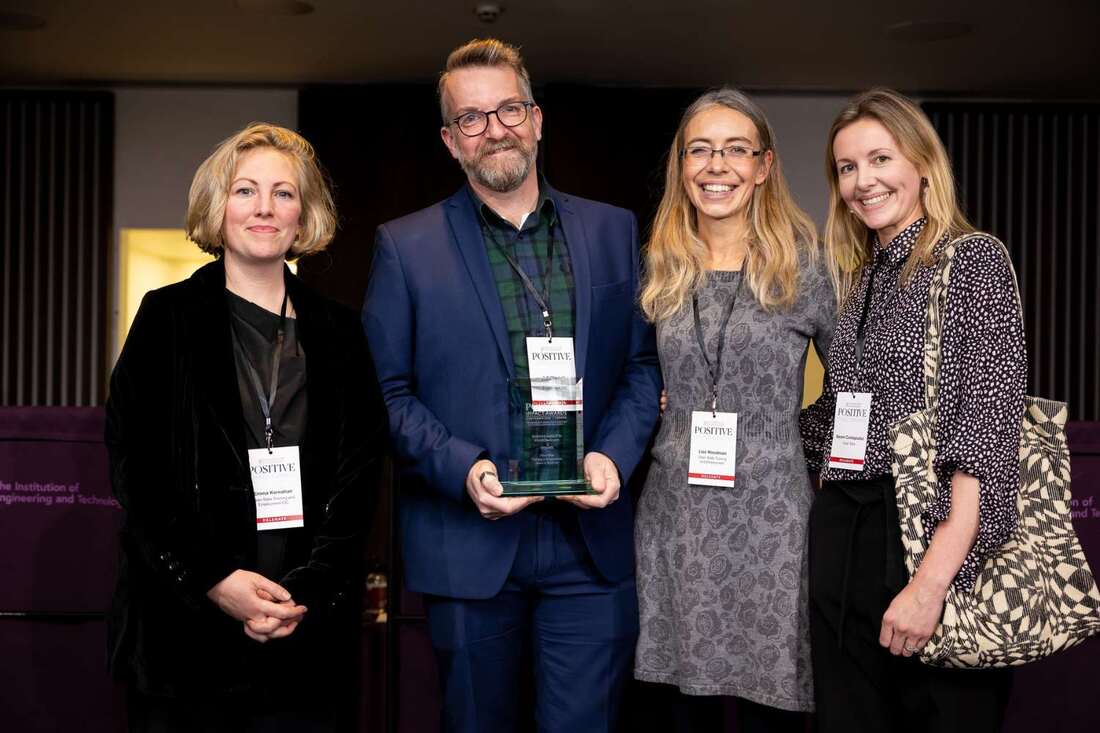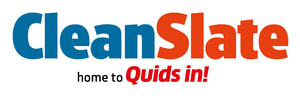|
Clean Slate has triumphed at the New Statesman Positive Impact Awards after helping 2,000 people on low incomes save an average £1,000 by rethinking their finances - that’s £2 million of financial gains shared between them. Bath-based Clean Slate Training and Employment has won a Positive Impact in Finance Award at the inaugural New Statesman Positive Impact Awards, held at Savoy Place in London on 6th December. With big names like Martin Lewis winning in other categories and up against household names like Triodos Bank and Legal and General, the judges were impressed by Clean Slate’s innovative approach to supporting people to improve their financial resilience.  *Image is copyright to The New Statesman Positive Impact Awards. From left to right: Emma Kernahan - Head of Programmes, Jeff Mitchell - Founder and Director of Clean Slate and Quids in!, Lisa Woodman - Head of Business Development, Naomi Contopoulos - Communications Manager. Clean Slate helps people on a low income to improve their finances via money guidance, employment and digital skills. Quids in! is their publishing and money skills initiative. A quiz in the company’s Quids in! magazine became the framework for delivering money guidance when all support had to be delivered remotely during the pandemic. The Future-Proof Finance Quiz asks 25, simple, yes/no questions. It looks at income and expenditure, but also at attitudes and habits. For clients in crisis, the simple approach allows them to relax and build trust. Soon, they are able to experience ‘quick wins.’ The quiz was developed in partnership with Mastercard and Good Things Foundation as part of the Nobody in the Dark campaign to address collectively financial and digital exclusion, with the steps of the quiz increasing client’s digital and financial confidence. The framework allows Support Workers to record financial gains next to actions. This might be people accessing benefits they are entitled to, changing their shopping habits or getting into work for example and 74.51% of clients say they now think carefully about their finances. On the question ‘Could you manage meals if your income stopped or changed for a few weeks’ only 16.9% of clients answered ‘yes’ the first time they took the quiz, jumping to 89.9% after receiving support. Clean Slate runs regular drop-ins in the West of England where people who are worried about money can come for a chat or, for those who prefer, Clean Slate is able to support people over the phone. The quiz is offered free for anyone struggling with their money and can be found on the Quids in! website. Jeff Mitchell, Founder and Director of Clean Slate and Quids in!, said: “Extreme financial crises often go hand-in-hand with mental health and even physical health crises - it’s an extreme stress response. We believe it makes sense to intervene before things reach this point. In a cost-of-living crisis, money guidance and financial resilience support is needed more than ever. We are ready to welcome people who need our help and we are also looking to expand our highly scalable model via a network of partners.” Ahead of the New Statesman Positive Impact Awards, Clean Slate Founder and Director, Jeff Mitchell, writes that in many ways, we are already winners Wish Us Luck… (And No, Not With The Football)
Tonight is the inaugural New Statesman Positive Impact Awards bash. Clean Slate is nominated for its Positive Impact in Finance trophy. You don’t need to wish us luck as, in many ways, we’re already winners… of recognition that our small team will be represented up alongside corporates, institutions, tech start-ups and long-established change-makers. We share our category with banking App Starling, ethical financiers Triodos and health research charity the Wellcome Trust. Just to rub shoulders here is a testament to ways we made a small dent on poverty during the pandemic emergency. In 2021 alone, we directly helped 2,000 people struggling to keep their heads above water financially. They shared about £2,000,000 of financial gains as a result. In many ways, this nomination belongs to them too because we try less to fix things for people but to give them the means to sort things for themselves. We also worked with 20 community partners and provided the tools for them to support 1,000 of their locals to boost their finances too. For us, this was kind of business as usual. Lockdowns forced us to re-imagine our delivery methods but we’ve been supporting people in poverty since we were established in 2006. There was a blindspot in commissioners’ thinking about what it takes to alleviate financial hardship. It was either all about debt and other crisis interventions or it was political. Money management was too everyday, something for us all to sort out ourselves as individuals. Maybe, with the pandemic, everyone felt vulnerable. ‘What would I do?’, they asked. And Clean Slate was suddenly working with social landlords, finance companies, national charities, local authorities, government departments and grant-makers everywhere. And without straying into crisis programmes or regulated financial advice, we helped people get on their feet. They not only felt able to cope but able to get on. Half the financial gains participants enjoyed were through finding work. These were often people who had felt hopeless. Now they recognised a future worth striving for. They felt in control. They knew the questions to ask and who to take them to. I wish I could say that with the cost-of-living crisis, we’ve only gone from strength to strength. Government procurement changes have allowed the fat cats back in, with employment support agencies with no experience in money guidance snatching the low-hanging fruit from the Department of Work and Pensions. Grant-makers have returned to their old priorities. Money management contracts are awarded to crisis programmes that patch people up and send them back out, potentially only to return again. Clean Slate had its chance to prove itself. And we totally did. The nomination for these awards might put a ratchet behind the thought leadership we’ve shown in what promoting financial resilience looks like. From a community perspective, it’s very much not business as usual. It is a profoundly impactful programme that starts from picking people up when they’ve been left behind. Whether that’s through our easy-read Quids in! magazines or through our money health-check and financial guidance programme, we’re meeting people halfway. Weirdly, that doesn’t happen often for people in hardship. Thankfully, we’re not directly up against some of the other giants standing for awards. Martin Lewis, Jack Monroe, Marcus Rashford and Richard Ratcliffe are all up for the Positive Impact in Society Award. And our friends at the Good Things Foundation (along with Virgin Media O2) are up for the Technology Award. So, wish us luck, but not so much for the awards. Instead, keep your fingers crossed that we can capitalise on this recognition and build new ways of working to lift thousands more out of hardship and hopefully out of poverty altogether. www.newstatesman.com/spotlight/2022/11/the-new-statesmans-change-makers |
© Clean Slate 2024. Clean Slate is a trading name of Clean Slate Training & Employment CIC. Registered office: 14 St James's Parade, Bath BA1 1UL

 RSS Feed
RSS Feed
